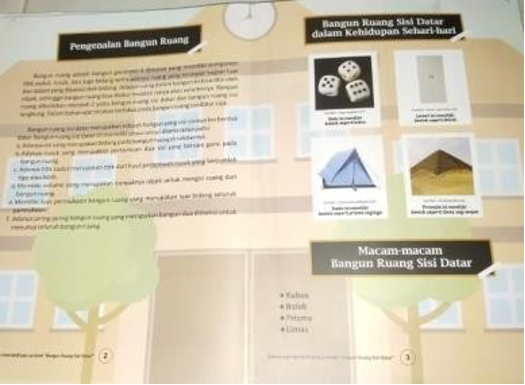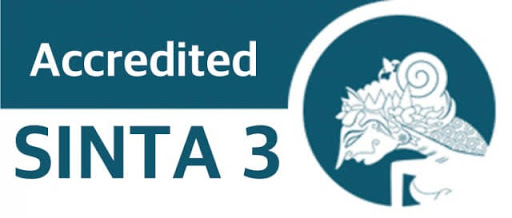Developing pop-up book teaching materials on polyhedron to improve junior high school students' mathematical literacy
DOI:
https://doi.org/10.12928/ijei.v4i2.10046Keywords:
mathematical literacy, polyhedron teaching material, pop-up bookAbstract
This research was motivated by the problems found at SMP N 1 Bantul, a junior high school in Bantul regency, Yogyakarta, which were obtained by conducting interviews with mathematics teachers. We found that there were still many students who had not received good stimulation in cognitive development at the concrete stages so that when entering the formal stages students have difficulty to make reasoning into more complex problems where this reasoning will affect students' mathematical literacy skills. Besides, they also lack of teaching materials especially in grade 7 due to using the new curriculum. One of which are the material of polyhedron which only explains concepts in general and does not explain further than the elements, content, and spatial components as well as the visualization of geometric shapes. This study aims to develop pop-up book teaching materials on polyhedron to improve the students' mathematical literacy skills. This development research used the analysis, design, development, implementation, and evaluation (ADDIE) model involving students of class VII-A in the testing. Before conducting testing in the classroom, the teaching materials, pretest, and posttest were validated by experts. The results are: (1) scores of material experts and media experts gave a valid result; (2) the students and teachers responses to teaching materials gave practical testimonies; and (3) there was an average increase from pretest to posttest results at 25.49 points.
References
Fuada, S. (2019). Testing the validity of signal generator props (oscillators) for learning workshops instrumentation industry. Seminar National Education 2015, (pp. 854-861).
Irsalina, A., & Dwiningsih, K. (2018). Analysis practicality development sheet activity participant educate (LKPD) oriented blended learning on material sour base. Journal of Chemistry and Chemical Education, 3(3), 171-182.
Kusumawardani, D. R., Wardono, W., & Cartono, K. (2018). Importance reasoning mathematics in increase ability literacy mathematics. Prisma, Proceedings National Mathematics Seminar (Vol. 1, pp. 588-595).
Marisa, m (2021). Innovation curriculum "Independent Study" in era society
0. Santhet: (Journal History, Education, Dan Humanities), 5(1), 66-78.
Rahmah, N. (2013). The nature of mathematics education. Al-Khwarizmi: Journal of Education Mathematics and Natural Sciences, 1(2), 1-10.
Santika, IGN (2021). Grand Design of Government Strategic Policy in the Field Education For Face Revolution Industry 4.0. Journal Education and development, 9(2), 369-377.
Suwardana, H. (2018). Revolution industry 4. 0 based revolution mentally. TEAK UNIQUE: Journal Scientific Engineering and Industrial Management, 1(2), 109-118.

Downloads
Published
Issue
Section
License
Copyright (c) 2023 Brilliant Cahya Puspaningrum, Vita Istihapsari

This work is licensed under a Creative Commons Attribution-ShareAlike 4.0 International License.
Authors who publish with this journal agree to the following terms:
- Authors retain copyright with the work simultaneously licensed under a Creative Commons Attribution License that allows others to share the work with an acknowledgement of the work's authorship and initial publication in this journal.
- Authors are able to enter into separate, additional contractual arrangements for the non-exclusive distribution of the journal's published version of the work (e.g., post it to an institutional repository or publish it in a book), with an acknowledgement of its initial publication in this journal.
- Authors are permitted and encouraged to post their work online (e.g., in institutional repositories or on their website) prior to and during the submission process, as it can lead to productive exchanges, as well as earlier and greater citation of published work (See The Effect of Open Access).




